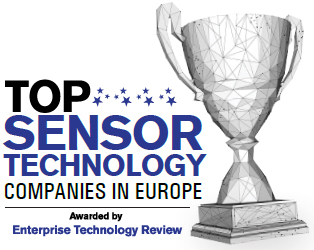
How Can Agriculture Drones be Used?
Enterprise Technology Review | Thursday, August 27, 2020

Unmanned aerial vehicles (UAVs) or drones were initially built for military purposes but are now widely applied in several industries such as agriculture.
Fremont, CA: Drones have become an integral part of smart farming, and they help the farmers to tackle a wide range of challenges. Most of these benefits stem from eliminating any guesswork and reducing uncertainty. The success of farming depends typically on various factors in which farmers have little or no control over like weather and soil conditions, temperature, and so on. This is where drone technology can become a real game-changer. With access to a vast pool of data, the farmers can increase crop yields, save time, reduce expenses, and act with unparalleled accuracy and precision. A drone-based agritech software processes the collected data and provides it in an easy-to-read format. 
The use of drones for precision agriculture is gaining popularity due to their ability to deliver the most up-to-date information quickly and efficiently. The evolution of drones’ software and its overall affordability also account for the increased application of drones.
Here are a few ways how drones can be used for agriculture.
Estimating soil condition
Smart farming is data-driven, enabling farmers to take action based on accurate information on soil conditions. Extracting this data had previously involved physical visits to the field and gathering metrics manually. Equipped with smart agriculture sensors, drones can collect and deliver this data, and they can also do it in a faster and more precise manner.
Fighting infections and pests
Agriculture drones inform farmers on soil conditions using thermal, multispectral, and hyperspectral technology, and they can also detect field areas inflicted by weeds, infections, and pests. Based on this data, farmers can decide on the exact amounts of chemicals needed to fight infestations, not only reduce expenses but also contribute to better field health.
Agriculture spraying
Smart farms also use drones for agriculture spraying, limiting human contact with fertilizers, pesticides, and other harmful chemicals. Drones can handle this task faster and more efficiently than vehicles and airplanes; they are also an excellent alternative for farms that still use manual labor.
Drones are also irreplaceable when it comes to spotting treatment. They can detect infected areas with sensors and cameras and work on them while leaving the excellent part intact. This not only saves time and increases safety, but also helps reduce expenses.
See also: Top VPN Services
Read Also




![Steve Caudill, Director, Agriculture Sector, Digital Operations, CNH Industrial [BIT: CNHI] Challenges In Off-Road Vehicle Autonomy](https://www.enterprisetechnologyreview.com/newstransfer/upload/370x420_N8cI.jpg)
![Jeff McConathy, VP of Engineering of Consumer Services, Trulia, a part of Zillow Group [NASDAQ: Z] Leveraging GIS to Empower House Hunters in their Search](https://www.enterprisetechnologyreview.com/newstransfer/upload/370x420_m7fx.jpg)


